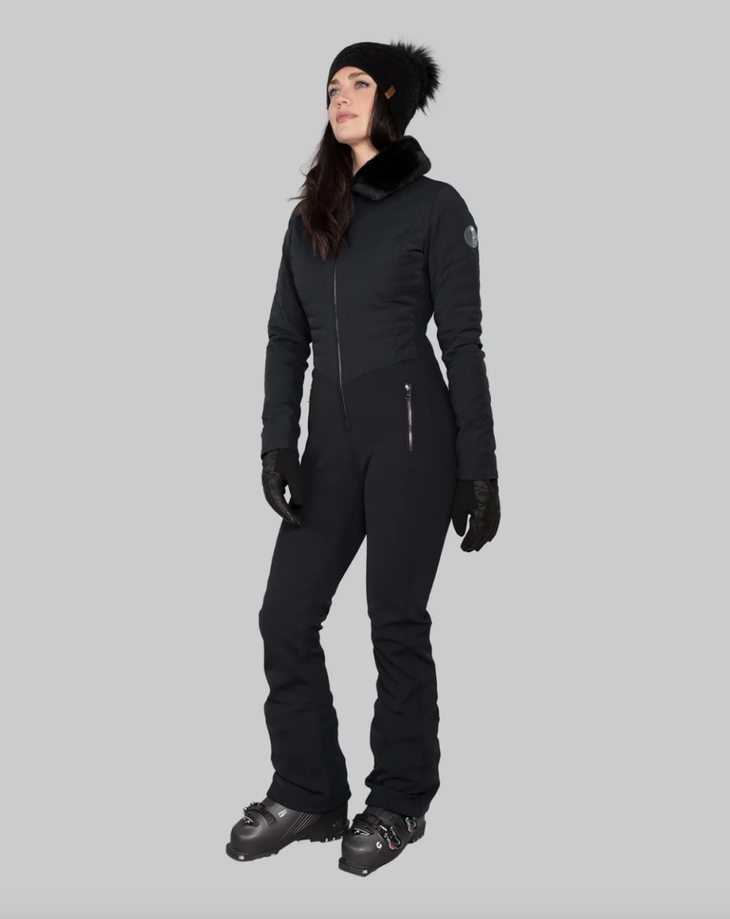
Alpine skiing is one of the few sports that have been a part of every single Winter Olympics. It requires fearless speed and technical ability, making it the most difficult event to compete.
Despite all its challenges, skiing continues to be a popular activity among all ages. Alpine skiing is a discipline that takes practice and patience, while freestyle skiing may be more about aerials in midair.
At the local and international levels, athletes compete in the sport. However, the Winter Olympic Games is the best-known event in the sport. There are six Olympic alpine skiing events: super-G (downhill), giant slalom (giant slalom), super-G (combined and mixed team parallel ski slalom).
Downhill
This is the longest and most difficult of all the alpine skiing events, with a vertical drop of 800-1100 meters (for men) and 450-800m (for women). Athletes are limited to skiing down one course. They must ski as quickly as possible to get to the bottom.
Slalom
The shortest and most technical of all the alpine skiing events, slalom has gates that are spaced closely together. This allows for precise turns, and fast racing.

The competitors must pass through each gate in the prescribed time or they will lose their place. The slalom is an elimination competition that involves two runners.
Giant Slalom
Similar to slalom and giant - or "super" - slalom also requires skiers must pass each gate in a certain time. This event has been held at every Winter Olympics since its introduction in 1936.
Super-G
Another speed event, super-G is a combination of downhill and ski slalom. The gates are meant to create turns that are more similar to those in slalom. However, athletes can't miss any of them.
Combined
The combined downhill/slalom event is the first addition to the Olympics' alpine skiing events. The aggregate time of both runs determines the winner.
Founded in 1924, the FIS is the governing body of the sport and governs it worldwide. It also acts as an umbrella organization for crosscountry skiing, ski jumping, snowboarding, and other related activities.
Its 136 countries are represented at the World Championships.

Although the Olympics has seen an increase of alpine skiing events it is still dominated by Alpine athletes. Austria is the country with the most gold and total medals.
There are a total of 138 national federations that compete in alpine skiing at the World Championships, and many of them have strong programs. France, Canada.
The United States has a strong presence at the Olympics. American Mikaela Siffrin, who won her second gold medal at these games last year, is expected again to win. She currently ranks second in the world, and has won four World Cup alpine skiing races. Petra Vlhova of Slovakia, who has been competing in alpine skiing for years with Shiffrin, is expected to join her in Beijing.
FAQ
How much luggage do I need?
The length of your trip determines how much luggage you should take. If you are traveling by plane, you only need hand baggage, usually less than 20kg. However, if you are taking a train or bus, then you will need more space.
A form will be provided to you when you arrive at the airport with information about your flight. This form will contain information about your flight, such as the weight and assistance required when you check them in.
Before you leave for work, make sure to check it. You might find yourself stuck waiting in line for hours as everyone else inspects their luggage.
It's best to travel light, as you never know when something might happen. For instance, if your bag is lost or stolen, you won’t have any clothes.
Here are some things you should never forget about when traveling.
When you travel, you'll find yourself in situations with little time to make decisions. Be ready to adapt.
Sometimes you might find yourself stuck for days, weeks or months. If you have a plan, you'll be able to provide food, water, shelter and a place to rest. But if you haven't, you may have to improvise.
These cases will likely require you to rely on the things you are most skilled at. That means making quick decisions based on instinct and experience.
But there are times when you can't choose. Sometimes, however, you will have to make do with what you have. You will need to be flexible to any situation that presents itself.
The key is to keep calm, stay focused and act decisively. Don't panic. Instead, focus on what you can control.
You can, for example, choose the direction you want to travel if you get lost in the woods. If you feel hungry, you have the option to eat berries or mushroom. Rainwater or melting snow are good options if you're feeling thirsty.
Or if you're tired, you can rest. You can layer up if you are cold. If it is wet, you have the option to change clothes. You will feel happier no matter what, if your outlook is positive
What should I do if I want to buy travel insurance
Travel insurance is important if your plans include adventure travel. You should ensure that you have coverage for all types and forms of adventure sports.
Skiers, for instance, should have adequate medical coverage. You should also consider getting coverage for theft, damage, and loss.
You should also consider buying cover for cancellation. You can cancel your holiday without incurring any penalty.
It is also a good idea if you are able to get emergency evacuation cover. You can also be taken off the mountain in the event of an avalanche, or another natural disaster.
How long does it take for you to fly between countries?
The distance between the airports as well as the weather conditions can affect the time it takes to fly.
The average flight takes around 3 hours.
However, the actual flying time depends on several factors such as the airline, the aircraft type, airport delays, and weather conditions.
Which countries are known for their best food?
Food varies from country to country. So it's hard to say which countries have the best food.
However, we can tell which countries have the best food!
TripAdvisor users have ranked the following countries as their top three.
-
Italy - Italy has been voted the number 1 destination by TripAdvisor users thanks to its fantastic food.
-
France - France came in second place because of its rich culture, cuisine and history.
-
Spain - Spain was third due to its beautiful beaches and great weather.
What snacks can I take on a plane?
You have many options for snacks to take with you when flying. Consider bringing along any food that you are fond of while traveling.
If you love chocolate, for example, you might want some chocolates and other treats like biscuits and crisps.
Perhaps you want something savory? You could pack some crackers or cheese.
Consider what type of drink you want to take on board. Perhaps you like hot or cold beverages?
No matter what type of snack you bring, ensure that they are packed securely and safely.
This way, you won't need to worry about them getting damaged during travel.
What should you bring on vacation?
Know what you want to do while on holiday. It's more than packing clothes. Also, think about where and how long your stay there.
Consider what type of activities you'd like to take part in. If you plan to visit exotic locations, you might consider scuba diving. If you plan on staying longer, you may want to attend local festivals.
You should let the people who are going to be caring for you know if you have any medical issues.
Statistics
- Alcoholic beverages with 24% alcohol or less are not subject to limitations in checked bags. (tsa.gov)
- Pack sweaters, jackets, and underwear in reusable compression bags creating up to 75% more space in your luggage. (wikihow.com)
- According to Maori legends, this park holds 14 fjords that were all carved by a giant stonemason with an adze. (busytourist.com)
- You can use compression sacs or cubes to reduce the volume of your clothes by up to 80%—this is especially convenient for bulky items such as sweaters and jackets. (eaglecreek.com)
- That's an 18% jump from 2019, the previous record year. (travelandleisure.com)
External Links
How To
How can you make it easier to travel?
You can travel with ease if you have everything in place. It is no longer necessary for you to plan where you are going to be stopping, how much you'll spend and what to pack. You can travel more efficiently if you plan ahead. This will ensure you don't waste time trying and figure things out on your journey.
Planning Ahead
There are many options for planning your travels. While some prefer to keep track online of all details, others prefer to make notes in a notebook. For some, planning is about planning the entire trip. Others may simply start packing and then go. No matter what method you prefer, planning is the best way to save time and energy on your trip.
Organizing Yourself
If you want to travel well, then you must also organize yourself. Make sure that you have a list of everything you need. Make sure that you've packed everything that you think you might possibly need. Think about the weather conditions in your destination country and choose clothes accordingly. Consider renting a car and whether you prefer public transportation. Check the facilities when you get to your hotel room. Is Wi-Fi available? Is breakfast included in the price of your hotel room? Do you have laundry facilities at the hotel? These are details you should add on to your checklist. These items will be checked off your checklist so you can relax while you enjoy your vacation.